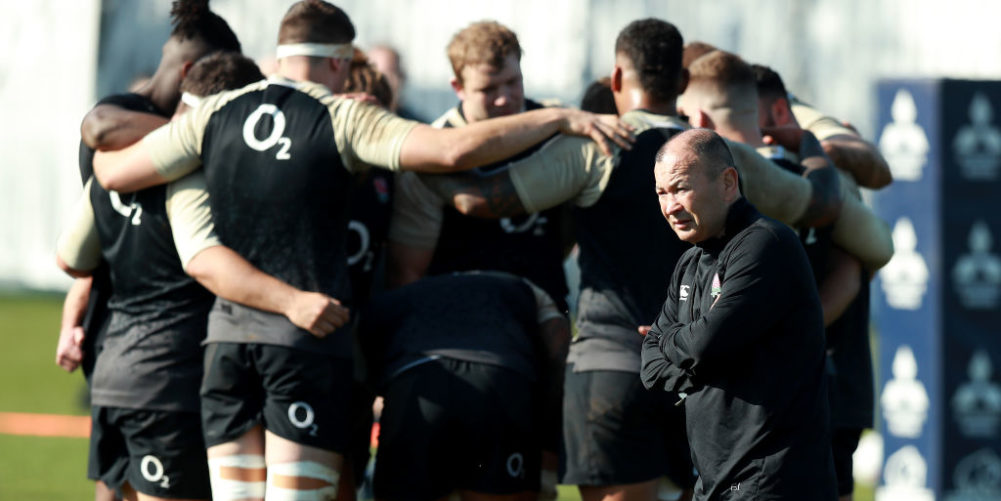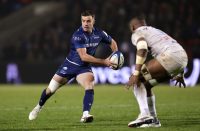ENGLAND should treat this game against Italy as if it was World Cup preparation, especially as they are the weakest team in the Six Nations, and there is a tougher game to come against Scotland.
If this was the World Cup you would put out a mix of reserves and first choice players for a game like this in your pool, and that means playing your second choice fly-half, George Ford, while Dan Robson should start at scrum-half.
Those are key selections because they are the big decision makers, and it will be good for them to get a feel of Six Nations action. They will be under pressure mainly because there is a high level of expectation, and it is not always easy to reach the level you want to against a team below you in the pecking order.
At the beginning of the Six Nations people were saying that this was the biggest squad of fit players Eddie Jones has had during his time as coach, but after the loss to Wales in Cardiff it’s time to freshen up the starting line-up.
It is a big week, because however many changes there are, their job will be to give England, and their supporters, a lift after the result in Cardiff. To do that they have to make sure that they do not struggle against Italy – and the best way to do that is to be as ruthless as Wales were against Tonga in the autumn.
I’d like to see Joe Cokanasiga start. He gets my vote because he’s a game changer who needs international match time. The more Test rugby he gets the more natural it will feel to him, and the more England stand to gain.
I would also start Manu Tuilagi again because he has been injured for so long that I don’t see the point in resting him, and the more he plays the better he will get. Not only that but the prospect of Tuilagi linking up with Cokanasiga is something to savour. They could be an incredibly destructive duo, and if they get the ball in their hands with everyone else feeding off them it would be wonderful.
It will be interesting to see how the side does without Owen Farrell, and find out whether they can function without him, or whether they are too mentally fragile at this stage. It’s essential to gauge that before the World Cup. They should be able to manage because George Ford is captain at Leicester and part of the England senior group, and he also reads the game well.

Overall, my reading is that backs can play as many games as they are required to because it is not that long until the regular season is over, and a bit of international mileage will not do any of them any harm.
It’s the bigger, more explosive forwards who take the heavier knocks and need more rest – and that applies to young Tom Curry who did so well in the brutal collisions at the breakdown but needs looking after. That’s why I’d start Mark Wilson at openside on Saturday, and put Brad Shields at blindside.
After a game like Wales all the backs will want to play against Italy, not least because they will think it’s a great opportunity to score tries.
As for the display against Wales, some people have highlighted that one of England’s weaknesses is that their decision makers were not able to change tactics. In my book there was nothing wrong with the kicking plan they had last weekend, it just needed to be more varied with more kicks along the ground – and they needed to be better placed, and competed for harder.
One of the reasons they appeared to over-kick against the Welsh is because they were not as accurate, and it’s about everyone being on the same page.
Often that was not the case, and an example was the mess in the last play of the first half when a scoring opportunity was wasted. Instead of Farrell cross-kicking to Jack Nowell he should have run the ball back to the pack and kept possession. The mentality at that point should have been to reset, and then to set up a drop-goal to make sure they struck a psychological blow just before half-time.
You would like to think that England will be self-critical in their analysis of the Welsh game, and take account the things they see on the replay that they did not see when they were on the pitch. Part of that will be recognising the need to kick into space – in behind the opposition wingers and full-back – and to see that if you can’t challenge strongly when you put a high ball up in the middle of the field, then don’t do it.
A kicking strategy is not as disastrous, or negative, as some people seem to think. I’m a big fan of playing the game in the opposition half, and often the best way of doing that is by kicking accurately. There are some who think it’s too one-dimensional, but it can be very effective, especially when it is combined by moving the ball quickly to the outside.
England also failed to press the reset button in the second half when they had a great opportunity after Farrell’s penalty put them 13-9 ahead. But it was then that they had a walkabout mentally, with Wilson’s knock-on from Farrell’s pass leading directly to the 34-phase Welsh attack that ended in Cory Hill‘s try. From then on it was, “good night England, thanks for coming”.
Introducing a few new players against the Italians at Twickenham on Saturday will make the coaches, and the rest of the squad, focus on what needs to be done. Their first defeat in this year’s tournament raises a number of questions that require answers.
For instance, is Mako Vunipola’s influence that great that it affected us against Wales? Because if it is, we need a rethink, and it might involve seeing whether Ellis Genge can offer something similar. It’s also probably time to give Luke Cowan-Dickie a run at hooker, and to start Joe Launchbury, who is fresh, at lock.
It may be too soon for Maro Itoje, but if he says he is fit, with a player of that calibre you know he will be ready. Also, after three weeks out you lose match fitness, so if he is in the plans to play against Scotland then playing against Italy would help him get rid of the ring-rust.
As for the backline against Italy, mine would be: Dan Robson, George Ford; Jonny May, Manu Tuilagi, Henry Slade, Joe Cokanasiga; Elliot Daly.
It could be a bit dysfunctional because when you make changes it alters the rhythm of a side – but that’s the risk, and it also challenges the players to get on the same page. They deserve the chance to show us what they can do.























